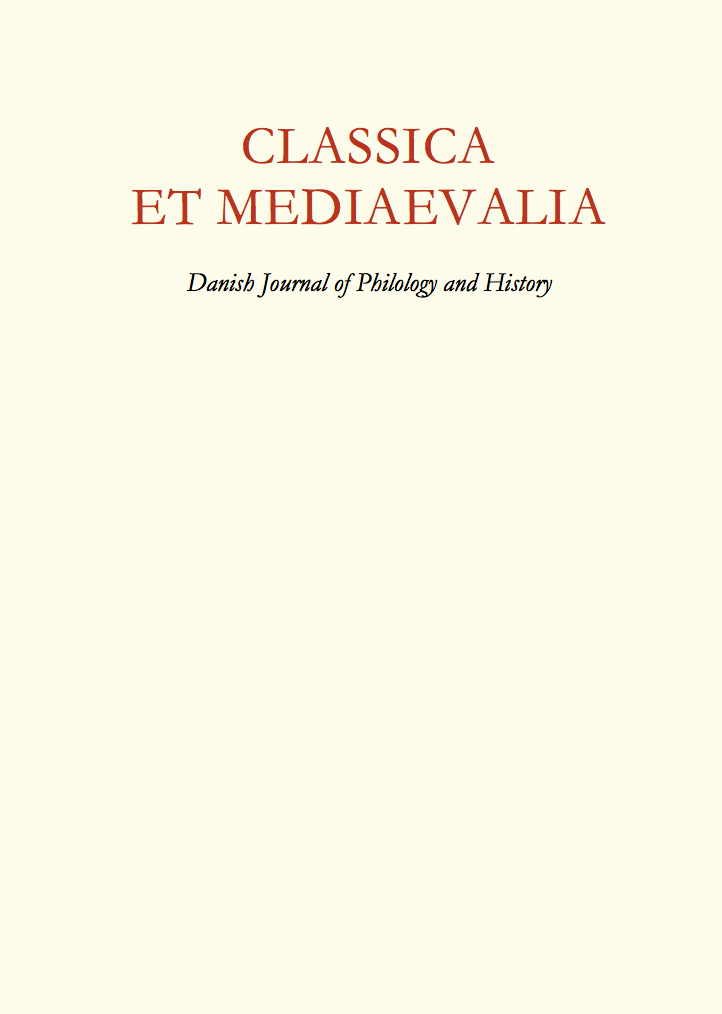A Sociology of Textile Production in Homer
DOI:
https://doi.org/10.7146/classicaetmediaevalia.v72i.142664Abstract
The textiles produced by the Homeric household are a necessity in an economy
in which trade and markets are almost unknown. The estate of which the household
is a part must be self-sufficient. Weaving produces clothing and also a surplus that is
stored for use in exchange. A sub-set of servants is organized for this purpose. The Homeric
epics provide sufficient evidence for a sociological description of how they are
organized. The freedom of Helen or of Andromache to choose the figures that she
weaves has to be understood in the context of this larger necessity.
Downloads
Published
How to Cite
Issue
Section
License
Copyright (c) 2023 Lowell Edmunds

This work is licensed under a Creative Commons Attribution 3.0 Unported License.
Authors who publish with this journal agree to the following terms:
- Authors retain copyright and grant the journal right of first publication with the work simultaneously licensed under a Creative Commons Attribution License that allows others to share the work with an acknowledgement of the work's authorship and initial publication in this journal.
- Authors are able to enter into separate, additional contractual arrangements for the non-exclusive distribution of the journal's published version of the work (e.g., post it to an institutional repository or publish it in a book), with an acknowledgement of its initial publication in this journal.
- Authors are permitted and encouraged to post their work online (e.g., in institutional repositories or on their website) prior to and during the submission process, as it can lead to productive exchanges, as well as earlier and greater citation of published work (see The Effect of Open Access).





